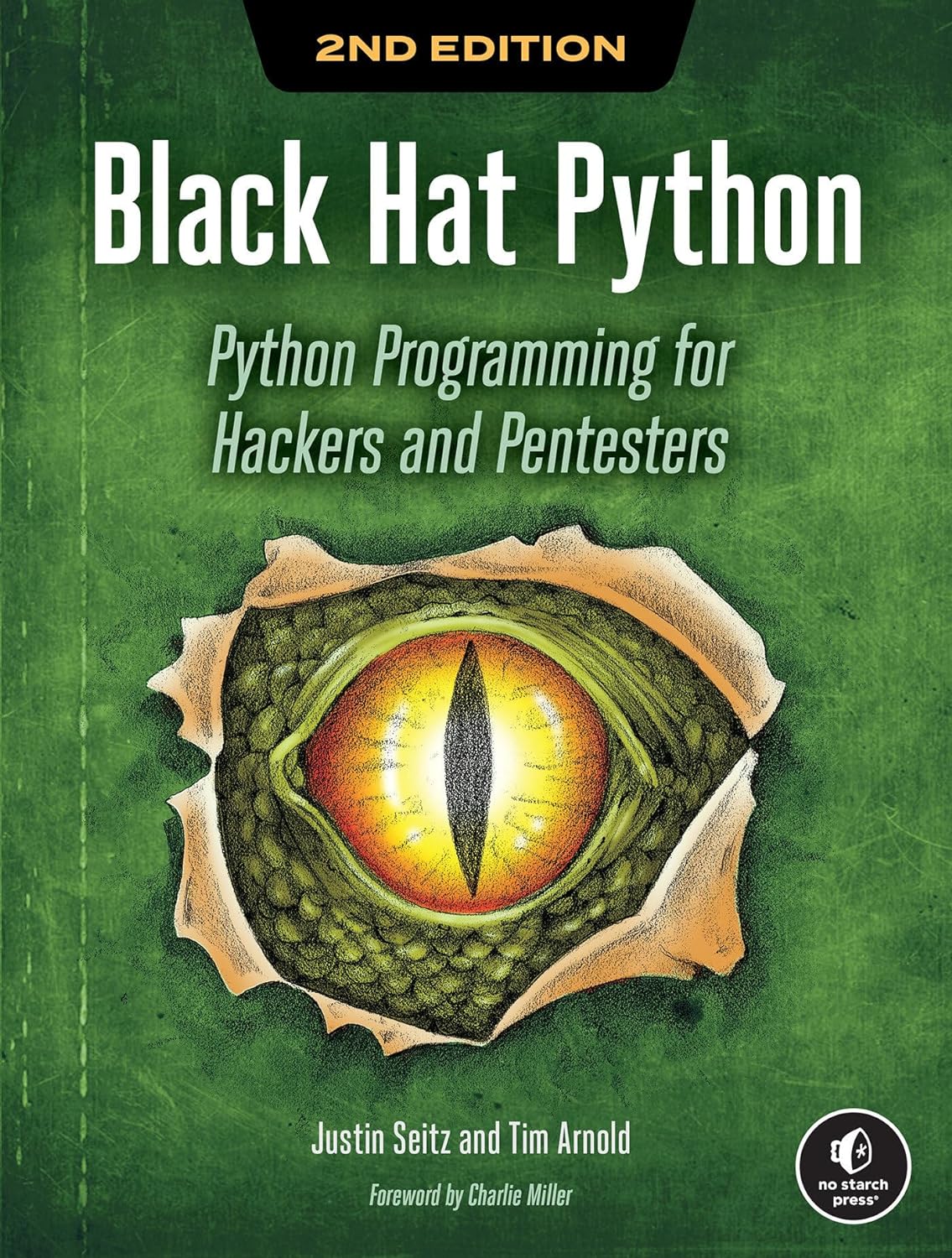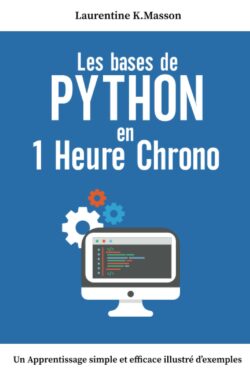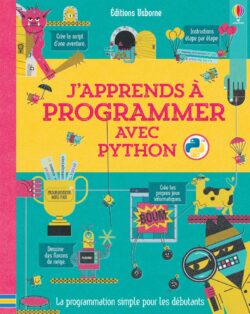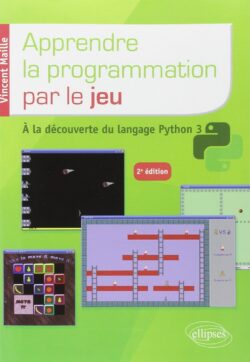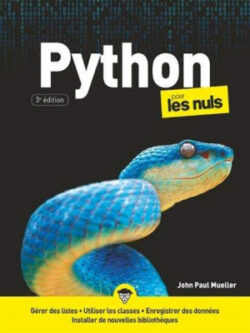$ 37,00
- Éditeur : No Starch Press; 2e édition (20 avril 2021)
- Langue : Anglais
- Broché : 216 pages
- ISBN-10 : 1718501129
- ISBN-13 : 978-1718501126
- Poids de l’article : 408 g
- Dimensions : 17.78 x 1.22 x 23.34 cm
Description
Introduction to Black Hat Python, 2nd Edition
"Black Hat Python, 2nd Edition" is a comprehensive guide to leveraging Python programming for hacking and penetration testing purposes. Authored by Justin Seitz and Tim Arnold, this book, first released on April 20, 2021, offers updated strategies and techniques for developing powerful hacking tools.
The Darker Side of Python
Python's versatility extends to the realm of cybersecurity, where it serves as the language of choice for security analysts and hackers alike. In this edition, readers delve into the stealthier capabilities of Python, learning to craft network sniffers, extract email credentials, perform directory brute forcing, develop mutation fuzzers, infect virtual machines, and more.
Updated for Python 3
This second edition, fully updated for Python 3, remains a global bestseller with over 100,000 copies sold. With code revised to align with the latest Python version, readers gain access to new strategies and tactics that reflect current industry standards and best practices in cybersecurity.
Expanded Python Libraries
The authors provide expanded explanations of essential Python libraries, including ctypes, struct, lxml, and BeautifulSoup. Furthermore, readers explore advanced techniques such as byte manipulation and leveraging computer vision libraries, empowering them to undertake sophisticated hacking projects.
Key Learning Objectives
Readers will acquire a diverse set of hacking skills, including:
Creating trojan command-and-control systems using GitHub.
Detecting sandboxing techniques and automating malware tasks like keylogging and screenshotting.
Escalating Windows privileges through innovative process control methods.
Utilizing offensive memory forensics to extract password hashes and inject shellcode into virtual machines.
Extending the capabilities of the Burp Suite web-hacking tool.
Exploiting Windows COM automation for man-in-the-browser attacks.
Stealthily exfiltrating data from networks.
Indispensable Offensive Security Skills
In the realm of offensive security, the ability to develop powerful tools quickly is essential. Through the insights provided in this edition, readers learn to create effective hacking tools on-the-fly, enhancing their capabilities as security professionals.
Updates and Enhancements
New material in this edition includes:
Updated Python code to cover Python 3.
In-depth explanations of code snippets.
Modern programming techniques and tactics.
Techniques for sniffing network traffic, evading antivirus software, brute-forcing web applications, and setting up command-and-control systems using GitHub.
Conclusion
"Black Hat Python, 2nd Edition" equips readers with the knowledge and skills necessary to navigate the complex landscape of cybersecurity. By leveraging Python programming, security enthusiasts and professionals can develop robust hacking tools and stay ahead in the ever-evolving field of cybersecurity.
